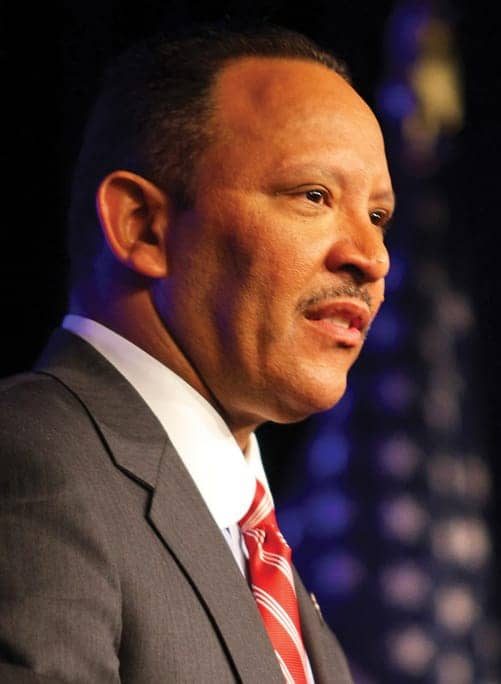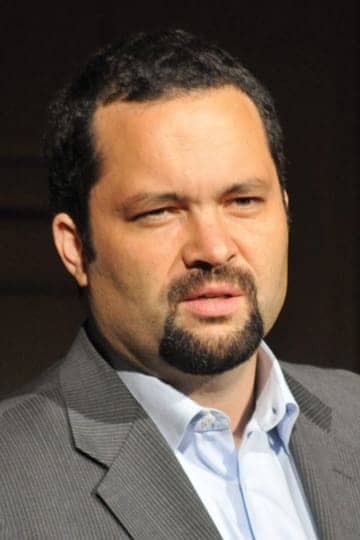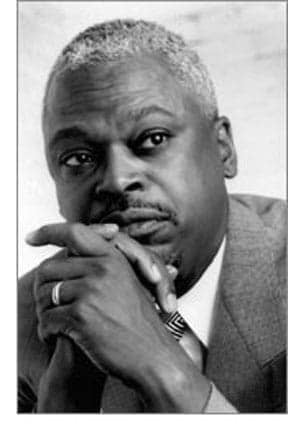by Hazel Trice Edney

“We’re sending a strong message to the president and Congress that we need to step up. We need immediate jobs – not some time six, eight and 10 months down the road,” National Urban League President Marc Morial said in an interview with the NNPA News Service. “African-American leaders are not just saying, ‘Do something!’ We’re offering solutions.”

“While I applaud the administration for publicly acknowledging the gravity of our nation’s employment situation, I would add that double-digit unemployment has been a reality for communities of color since last summer – for African Americans since August 2008 and for Latinos since February 2009,” he writes. “As president and CEO of the National Urban League, the nation’s oldest and largest community-based movement devoted to empowering African Americans to enter the economic and social mainstream, I have firsthand knowledge of the tremendous obstacles these families have been facing, not just since national unemployment reached 10.2 percent in October, but for over a year now.”
Morial’s strongly worded letter came on the heels of a Nov. 17 statement issued by leading African American civil right groups, the NAACP, headed by Ben Jealous, the Leadership Conference on Civil Rights, headed by Wade Henderson, and other major organizations.

“Joblessness on this scale creates enormous social and economic problems – and denies millions of families the ability to meet even their most basic needs. It also threatens our nation’s future prosperity by casting millions more children into poverty, foreclosing educational opportunities for many, limiting the investment and innovation that will fuel future growth, and dimming long-term labor market prospects, especially for younger workers.”
The joint statement credits the Obama administration for prioritizing the economy as its first major action, pushing through a $787 billion stimulus package approved by Congress and already creating more than a million jobs. But the groups are pushing for greater action.
Despite the issue of health care, still very much on the front-burner as it is slated for Senate debate this week, the jobless crisis is demanding equal attention as it boils to the top. House leaders hope to vote on a jobs bill by mid-December while Senate leaders have indicated they would take up a jobs bill after the health care debate.

The joint statement, also signed by the AFL-CIO, the National Council of La Raza, the Center for Community Change and the Economic Policy Institute, indicates that the crisis-level concern is escalating as the numbers grow out of control – and with racial disparity.
“Nearly 16 million Americans who are able and willing to work cannot find a job. More than one out of every three unemployed workers has been out of a job for six months or more. The situation facing African American and Latino workers is even bleaker, with unemployment at 15.7 percent and 13.1 percent, respectively,” said the statement, titled, “An Urgent Call to Action to Stem the U. S. Job Crisis.”
At a White House press conference last spring, President Obama fielded a question about rising Black unemployment by saying, “A rising tide lifts all boats,” meaning as he addresses unemployment overall, Black unemployment will also be addressed. But, economists and civil rights leaders say general economic remedies will not be enough to rescue unemployed people who have nearly sunk to the bottom in their struggle to find work.
“A rising tide lifts all boats for those that are in the boats,” Morial said. He says reported unemployment percentages only reflect those that are still looking for work, not those who have all but given up after repeated rejections.
“The real overall unemployment rate is something like 17 percent. And it’s higher than that in the Black community,” he said.
Morial’s letter is addressed to Lawrence Summers, director of Obama’s National Economic Council, Senate Majority Leader Harry Reid, Speaker of the House Nancy Pelosi and Congressional Black Caucus Chair Barbara Lee. The following is a synopsis of his recommendations:
• Fund direct job creation by offering financial support to cities, counties, states, universities, community colleges and non-profit community based organizations to hire the personnel necessary to provide critical services in communities across the nation.
• Expand and expedite the Small Business Administration’s Community Express Loan Program through a reduction of the interest rate to 1 percent targeted for those businesses located in areas where the local unemployment rate exceeds the state average.
• Create Green Empowerment Zones in areas where at least 50 percent of the population has an unemployment rate that is higher than the state average.
• Expand the hiring of housing counselors nationwide by investing $500 million to fund housing counseling agencies nationwide to help delinquent borrowers work with their loan servicers to secure more affordable mortgages.
• Expand the Youth Summer Jobs Program for 2010 by investing $5-$7 billion to employ 5 million teens. The unemployment rate for African-American youth is over 40 percent.
• Create 100 Urban Jobs Academies to implement an expansion of the Urban Youth Empowerment Program (UYEP) to employ and train the chronically unemployed.
“At a time of the year when we traditionally give thanks and prepare to share generously with those around us, the American people are both frustrated and disappointed,” Morial concludes. “Despite the ambivalence of most Americans with regards to spending billions of dollars to bail out the very businesses they felt had previously taken advantage of them, they understood the need to take swift and deliberate action to avoid a major national, or even global, financial crisis. We ask that the same urgency be given to the people experiencing a personal financial crisis in cities throughout this country.”
Hazel Trice Edney is editor-in-chief for NNPA, the Black Press of America, www.BlackPressUSA.com.





